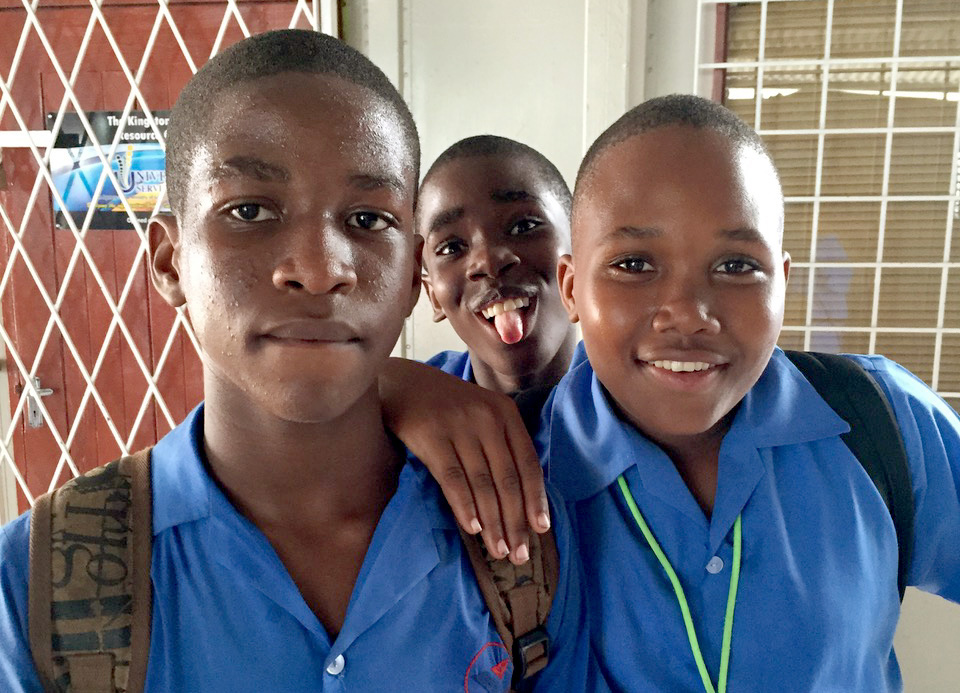Giving Jamaican Youth the Chance to Thrive
Story

When Romane started school at the YMCA in Kingston, Jamaica, he approached Christine every day with the same question: “Do you have any food?”
“He hadn’t eaten anything at home,” recalled Christine French, a British Columbia native who spent a year volunteering at the YMCA through Cuso International.
Romane’s mother had just started a new job, but she wasn’t making enough to afford both rent and food. Christine notified the YMCA staff, who then figured out a way to fill Romane’s empty belly at school. They even convinced a local grocery store to let Romane and his mom take leftover food whenever they could.
“I’ll never forget Romane,” Christine said. “His mom still texts me every once in a while and lets me know how they’re doing.”
When many Canadians think of Jamaica, they picture pristine beaches with reggae playing in the background. But this is by no means the full picture.
Over the last 30 years, Jamaica has been one of the slowest developing economies in the world. This has caused high rates of poverty and unemployment—particularly among youth. On top of that, public education is not entirely free, which leaves many of the country’s poorest children unable to attend school.
The YMCA helps address these issues by offering education programs and life skills training to youth who come from difficult circumstances. Some, like Romane, arrive hungry. Others are tired after staying up all night to work for the local gang leader in their community, guarding drugs or weapons. With little education or job opportunities, they feel this is their only option to earn money.
Using her experience in organizational development at the B.C. Government, Christine helped the YMCA staff with their long-term program planning. But she felt she had the most impact through her work and relationships with boys like Romane.
Despite their tough exteriors and experiences, Christine realized these boys were craving kindness and friendship. And they still had their child-like curiosity.
That’s why Christine decided to run a week-long robotics camp for a group of 20 students. Not only did they learn something new and hands-on, they also had the chance to excel at a marketable skill that captivated their minds and hearts.
Christine remembers one student who enjoyed the camp so much, he spontaneously stood up and thanked the people who ran it.
“It was magical to see how positive reinforcement, learner-centric education, and healthy food transformed them,” she said. “In just five days, they were completely different young people.”